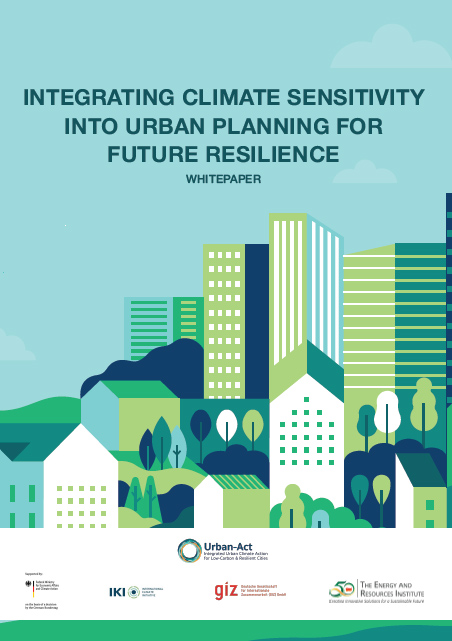Integrated Urban Climate Action for Low-Carbon & Resilient Cities (Urban-Act)

The Asia-Pacific region is undergoing an unprecedented wave of urbanization, with over half of its 2.2 billion people currently residing in cities. Already constituting half of the world's urban population, projections suggest that this number will grow by 50% by 2050, resulting in even greater infrastructure needs and escalating carbon emissions.
Cities are responsible for over 70% of global greenhouse gas emissions and 75% of primary energy consumption. At the same time, these rapidly urbanizing areas are increasingly susceptible to an array of climate change impacts, including heavy rainfall, floods, heat waves, and disaster-induced displacement.
Notwithstanding these challenges, urban areas play a central role in catalyzing climate action. They possess the capacity to generate opportunities for enhancing resource efficiency and significantly reducing greenhouse gas emissions through the adoption of low-emission development pathways. However, transitioning to a low-carbon future entails a fundamental shift in the planning, design, management, and governance of cities.
Objective of the Project
The Urban-Act Project, short for ‘Integrated Urban Climate Action for Low-Carbon & Resilient Cities’, supports a transformation towards low-carbon and resilient urban development in five countries - India, the Philippines, Thailand, China, and Indonesia. This initiative aligns with the goal of implementing the Nationally Determined Contributions (NDC) and the 2030 Agenda for Sustainable Development.
Central to Urban-Act's mission is the enhancement of multi-level governance and participatory methods by improving policy tools, enabling evidence-driven tools, conducting technical analysis, integrating climate-sensitive urban planning solutions, and strengthening city-level capacities.
Across these countries and levels, Urban Act has the following four output areas:
- Improved institutional environment for climate-sensitive urban development
- Evidence-based and inclusive climate-sensitive spatial and urban planning
- Project concepts for urban climate action investments identified
- Enhanced knowledge through regional networking, exchange and learning
In India, the project’s focus will be on three pilot cities – Coimbatore, Panjim, and Shimla. The project is being implemented by TERI, GIZ India, and the National Institute of Urban Affairs (NIUA), in close collaboration with the project's regional partners, including UNESCAP, the University of Stuttgart, and TU Dortmund University.
Overall, the Urban Act project will work towards enhancing enabling conditions for the planning and implementation of evidence-based and inclusive urban climate actions, thereby fostering resilience and sustainability in the face of climate challenges.
Relevant Project Studies/ Reports:
TERI Whitepaper: Integrating Climate Sensitivity into Urban Planning for Future Resilience
This whitepaper underscores the need for cities, especially in the Global South, to embed climate resilience and low-carbon strategies into urban planning. It presents global best practices and offers actionable guidance to city governments on innovative policies and practices to support sustainable, climate-resilient urban development.
ESCAP report: https://www.unescap.org/kp/2024/assessing-indias-enabling-framework-conditions-subnational-climate-finance
For more information on the project, kindly contact Rhea Srivastava at rhea.srivastava@teri.res.in.
The IKI Independent Complaint Mechanism (ICM) works worldwide to help resolve issues concerning IKI projects. If you are a stakeholder and have been negatively impacted by this project you may file your complaint at https://www.international-climate-initiative.com/en/about-iki/values-responsibility/independent-complaint-mechanism/how-to-file-a-complaint/

